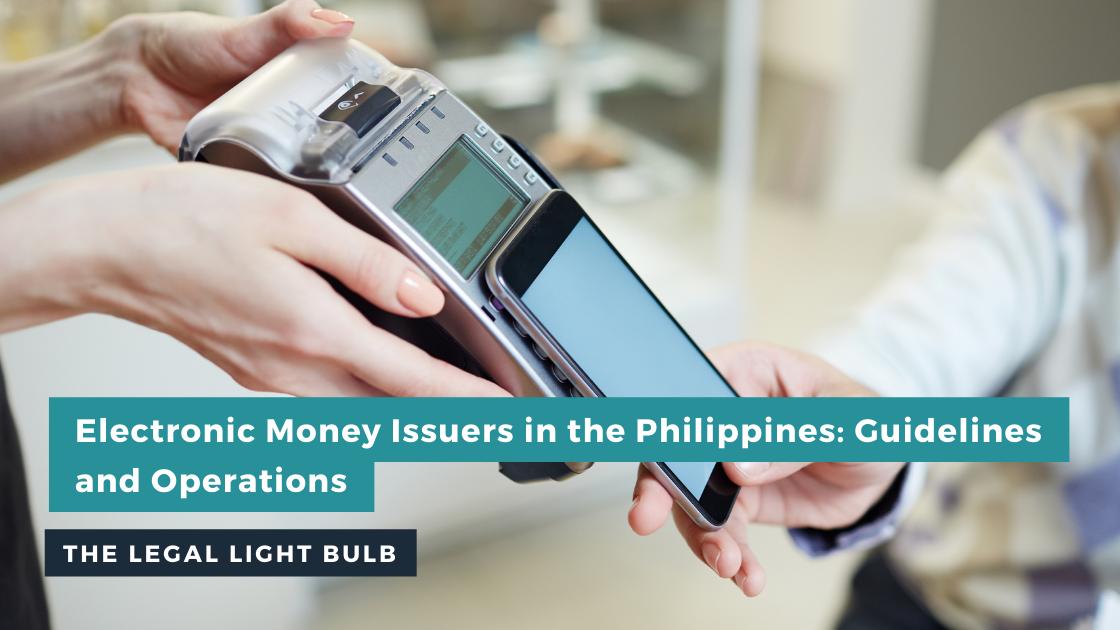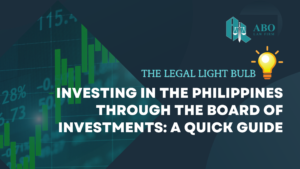In the last 4 years, especially during the Covid-19 pandemic, Electronic Money (E-Money) has played a vital role in the Philippines. To this day, it still remains one of the most used alternatives for transactions involving money services. Operations of different Electronic Money Issuers have also increased over time which has contributed to the rise of Fintech Lawyers and Fintech Law Firms in the Philippines.
With this, the Bangko Sentral continues to strive for improvements in the guidelines on E-Money and the operations of Electronic Money Issuers to better attend to the evolving needs and behaviors of its consumers.
On 7 February 2023, the Bangko Sentral issued Circular no. 1166 Series of 2023[1] amending the manual regulations for banks and non-bank financial institutions, specifically the rules governing the issuance of E-Money and the operation of Electronic Money Issuers in the Philippines.
Definition and Large-Scale Electronic Money Issuers and Expanded Definition of E-Money
Under Circular no. 1166 Series of 2023, the Bangko Sentral defined large-scale Electronic Money Issuers as Electronic Money Issuers with a 12-month average value of aggregated inflow and outflow transactions that are equal to or greater than Twenty-Five Billion Pesos (Php 25 billion)[2].
The issued amended guidelines have also expanded the definition of E-Money to those electronically stored monetary values that is withdrawable in cash or cash equivalent, or transferable to other accounts/instruments that are withdrawable in cash.[3]
Further, the amendments to the guidelines of E-Money and the operation of Electronic Money Issuers have simplified the classification of Electronic Money Issuers into two categories:
- Electronic Money Issuer-Banks; and
- Electronic Money Issuer-Non-Bank Financial Institutions
Electronic Money Issuers which were previously classified as “EMI-Other” and cooperatives are now grouped under Electronic Money Issuer-Non-Bank Financial Institutions.
The Revised Rules on the Load Limit
The BSP has now lifted the monthly aggregated load limit amounting to One Hundred Thousand Pesos (Php 100,000.00).
Under the amended rules, issuers are now allowed to set a predefined limit and threshold per client provided that, it is based on the results of their institutional risk assessment and customer due diligence.
New Regulation on Capital and Liquidity Requirement
The revision of the guidelines on E-Money and the Operations of Electronic Money Issuers aims to set out higher liquidity and capital requirements for Electronic Money Issuers with significant outstanding E-Money balances and large-scale operations.
According to the BSP, the liquidity and capital requirements is based on the scale of their operations are set to guarantee the resiliency of the industry and protect its customers in which Fintech Lawyers and Fintech Law Firms play a significant role in ensuring that these requirements are met.
Under the new guidelines, large-scale Electronic Money Issuers are now required to maintain a minimum capital of Two Hundred Million Pesos (Php 200,000,000.00), while small-scale Electronic Money Issuers are required to maintain a minimum capitalization of One Hundred Million Pesos (Php 100,000,000.00).
The BSP has also set new liquidity requirements for E-Money users with large operations. Currently, Electronic Money Issuers with monthly outstanding E-Money balances of at least One Hundred Million Pesos (Php 100,000,000.00) are now required to maintain an outstanding balance of at least 50% of their liquid assets on their trust accounts and cover the remaining balance with placements in bank deposits, government securities, or other liquid assets acceptable to the BSP[4].
Electronic Money Issuers with an outstanding balance below Php100 million are permitted to continue to comply with the liquidity requirements by holding eligible liquid assets[5].
With the continued amendments in the guidelines and rules governing the issuance of E-Money and the operations of Electronic Money Issuers in the Philippines, it is best to consult a Fintech Lawyer or be guided by the best Fintech Law Firm in the Philippines to keep pace with its changes.
Written by: Kacie Crisologo
[1] https://www.bsp.gov.ph/Regulations/Issuances/2023/1166.pdf
[2] Section 1, Capital Requirements, BSP Circular No. 1166 series of 2023.
[3] Section 1, Definition of Terms, a(7), BSP Circular No. 1166 series of 2023.
[4] Section 1, Definition of Terms, g(1)(a), BSP Circular No. 1166 series of 2023.
[5] Section 1, Definition of Terms, g(2), BSP Circular No. 1166 series of 2023.





